Sofia Tsamassiros
"It could be that you’re having a difficult day, so you go really hard to get through your anger. Another day, you might just want to ride to the coffee shop. The beauty of cycling is that you can get so many different things from it."
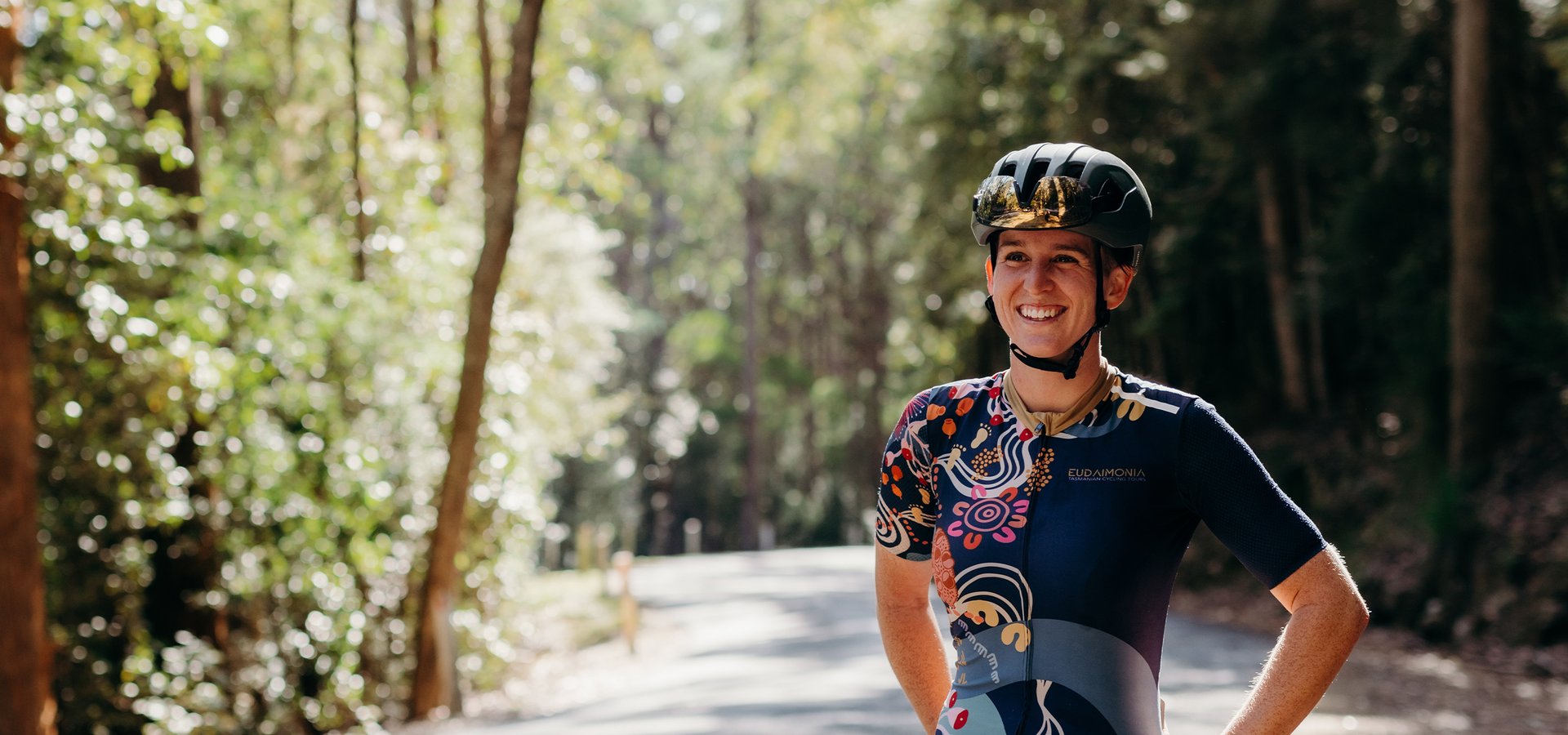
"I think the connection I had, both to place but also to my own experience, felt so profound on a personal level… I wanted other people to experience it as well."
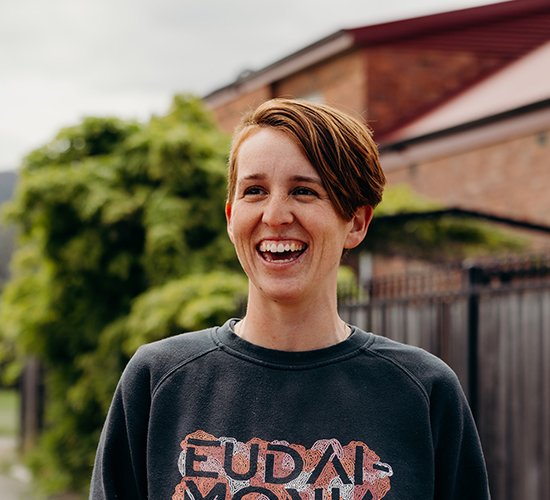
For Sofia Tsamassiros, cycling is far more than just a sport.
It started as a way to challenge herself physically, and to support her mental health after stepping away from elite soccer. In the early days, Sofia’s main focus was testing her limits, pushing through gruelling rides, and clocking up the kilometres. But the aspects of cycling that have kept her engaged is something bigger. A sense of freedom, and a powerful tool for community-building.
“I really enjoyed the sense of exploration,” Sofia says. “Which is why I very naturally gravitated towards bike-packing to start. It becomes less about the numbers, and more about enjoying the journey and looking after my mental health. I think the connection I had, both to place but also to my own experience, felt so profound on a personal level… I wanted other people to experience it as well.”
Sofia launched her tour company Eudaimonia—a Greek word that defines wellbeing as following your passion—in 2019. She takes participants bike-packing, cycling that combines the use of a bicycle with camping and wilderness exploration, through some of Tasmania’s most stunning landscapes. It’s an enterprise that is just as much about the people as the pedals.
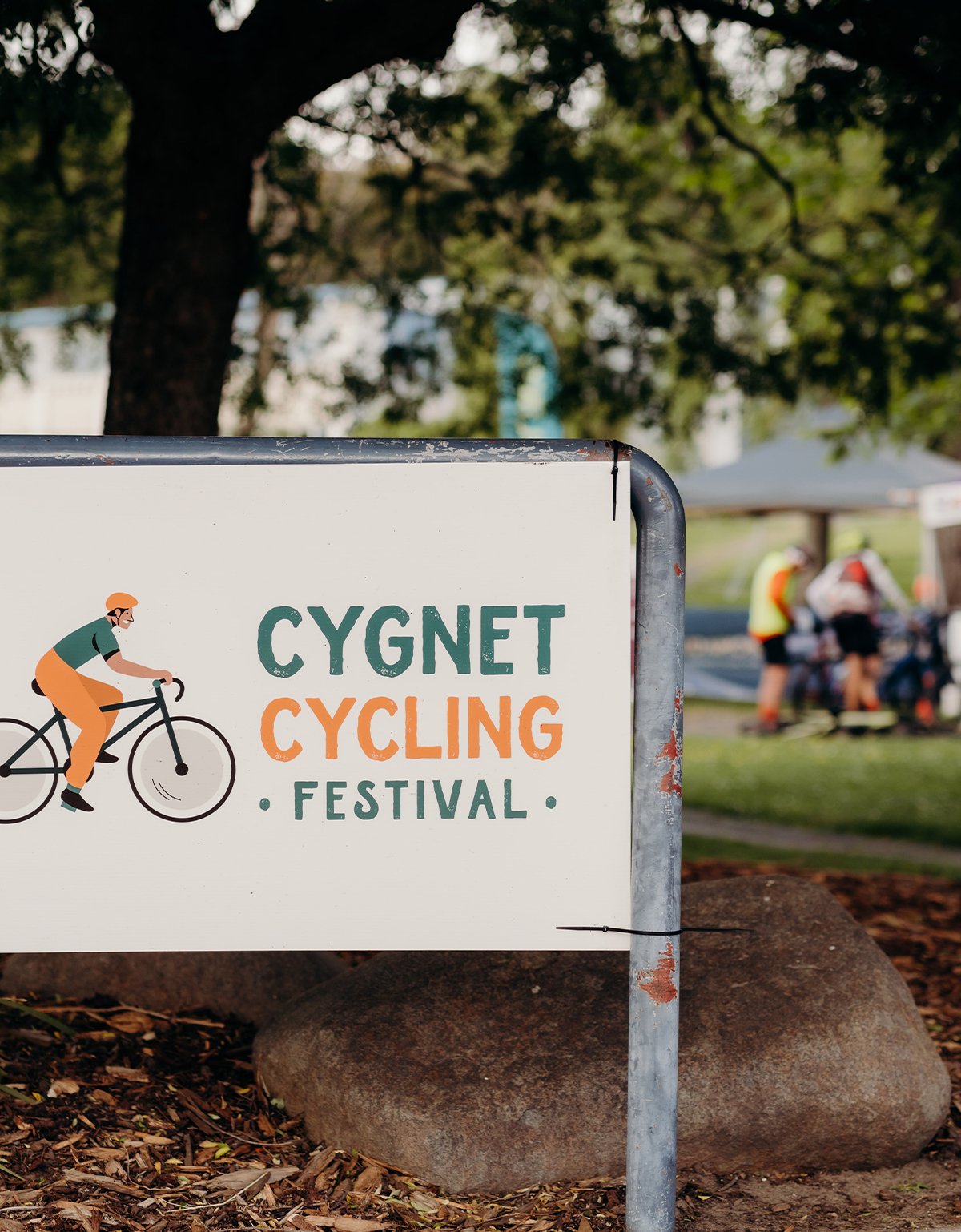
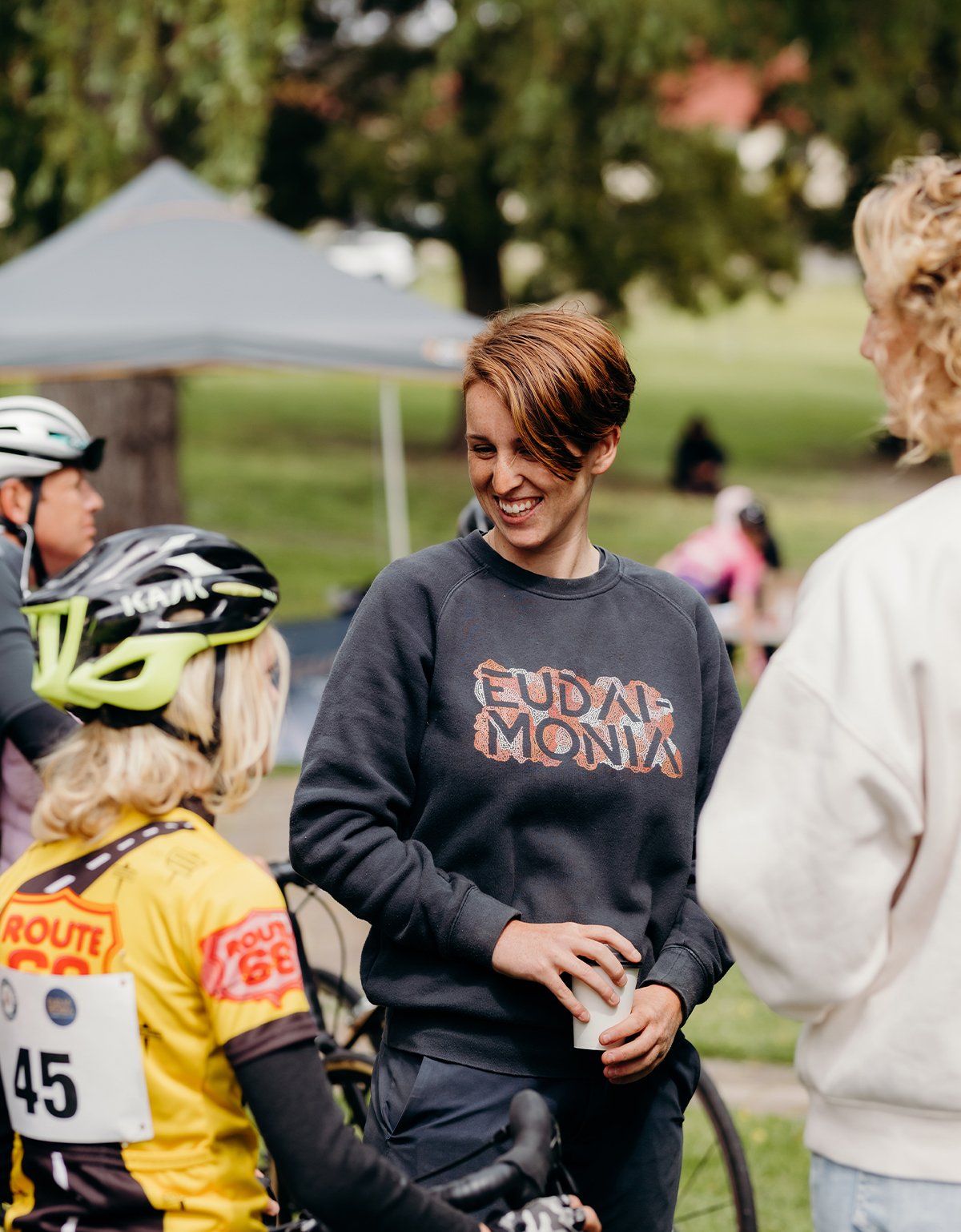
My favourite part is experiencing everything that I see, every day, through someone else’s eyes. It’s super special, and different every time.
“My guests are a real mix of people from all different kinds of backgrounds,” she says. “On the public tours there’s usually a combination of couple and individuals, so I really try and create a bond and familiarity as soon as possible, knowing we are going to be in such close proximity for a few days.”
The sense of connection between riders is what makes running tours so rewarding for Sofia. “My favourite part is experiencing everything that I see, every day, through someone else’s eyes,” she says. “It’s super special, and different every time.”
This same philosophy extends beyond her tours. Sofia is focused on finding ways for cycling to work for people regardless of their skill level, interests or experience. For those who aren’t ready to commit to a multi-day bike-packing excursion, there are other options.
“It’s quite easy, with cycling, to choose the level you go at,” she says. “It could be that you’re having a difficult day, so you go really hard to get through your anger. Another day, you might just want to ride to the coffee shop. The beauty of cycling is that you can get so many different things from it. As soon as I even had the option of doing something with Hell of the South, I knew I wanted to bring it more to community.”
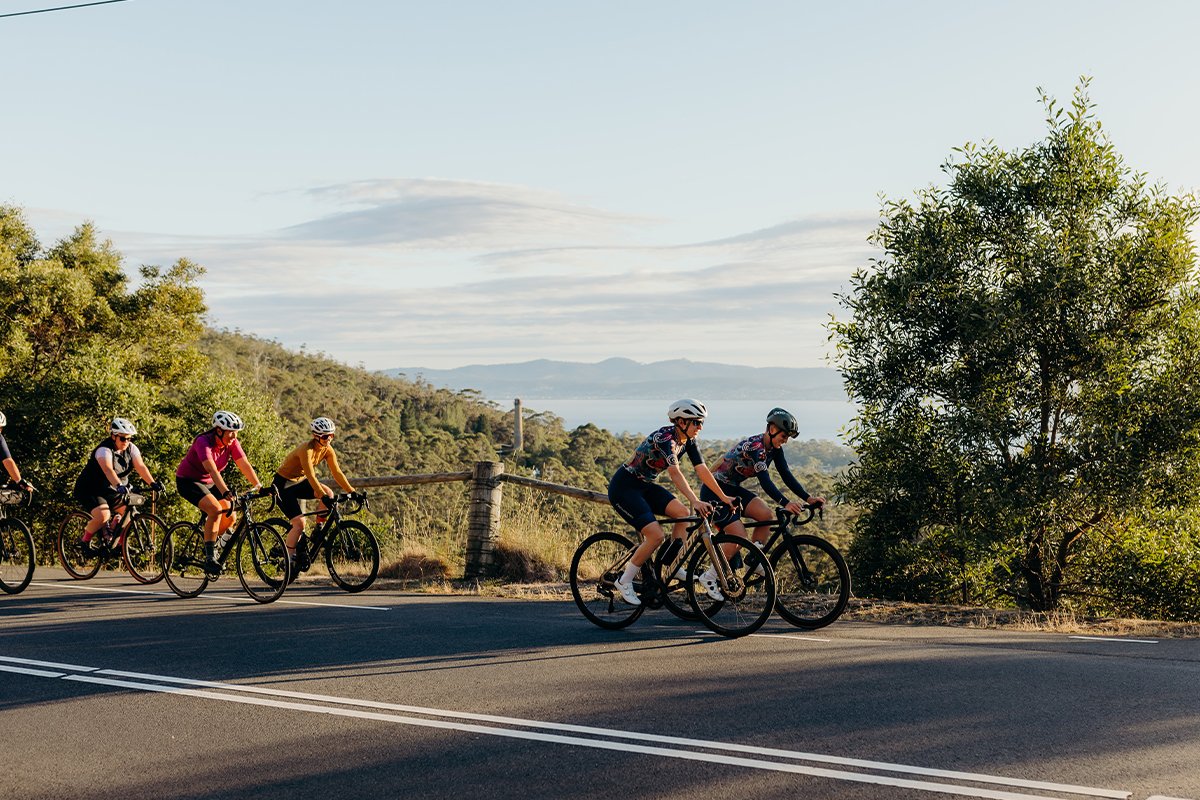
Hell of the South is a challenging 60km cycle race in Cygnet that has been running since the 1980s. When Sofia was asked to help get more people involved, she saw an opportunity to transform the race into a more inclusive event that embraced the town’s strong community spirit. Now a full-day event, the Cygnet Cycling Festival incorporates the original Hell of the South race—including the infamous 8km gravel section—but has expanded to feature social rides, a family ride, and an event hub in Loongana Park. It has been a big success, with over 200 participants in its first three years. Sofia is now aiming to grow that number beyond 300.
“I think just bringing that community and vibe into town is really the thing that feels special,” she says. “It shows how important it was to create a space that was more inviting.”
While the festival is an annual highlight, Sofia’s commitment to inclusivity in cycling extends year-round. She runs weekly and monthly community rides for cyclists of all abilities, such as Girl Gang, a monthly riding group designed to create a supportive space for women, and Queers & Gears, which focuses less on lycra and more on community for queer folk and allies alike. Each ride starts with introductions, which Sofia says is one of her favourite moments. “Everyone gets context for why they’re there. And I think then it navigates the direction the ride is going to go.”
The pace is always set by the comfort of the group, with no pressure to perform at a certain level. “Turning up for the first time is always the hardest and the most intimidating,” says Sofia. “But we always go at the pace of the slowest rider on the day, and it’s a great opportunity for everyone to meet and chat. Almost every single Girl Gang ride, we’ve welcomed someone new, which is really cool.” True to her philosophy that cycling should be enjoyable, every ride ends with a coffee stop.
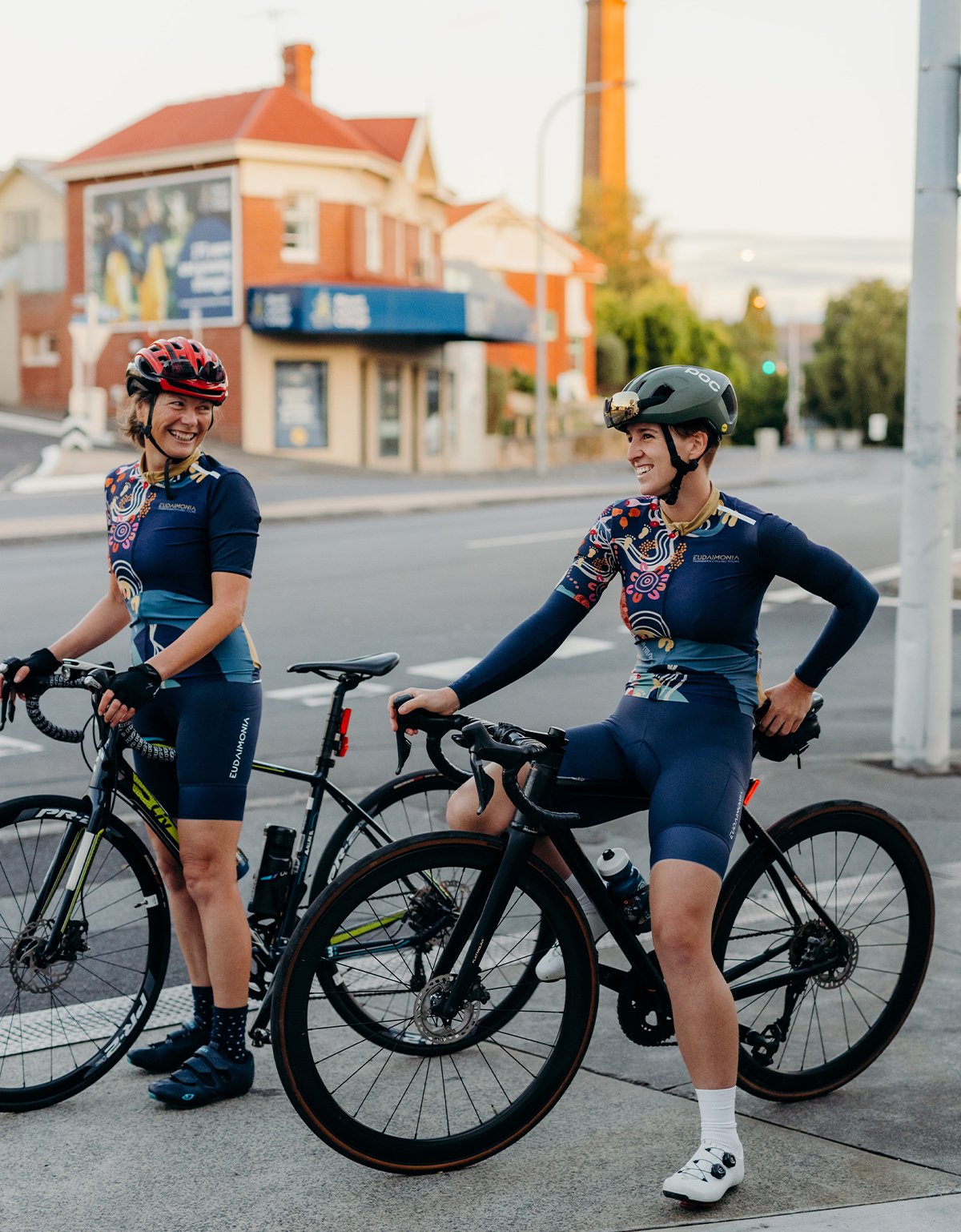
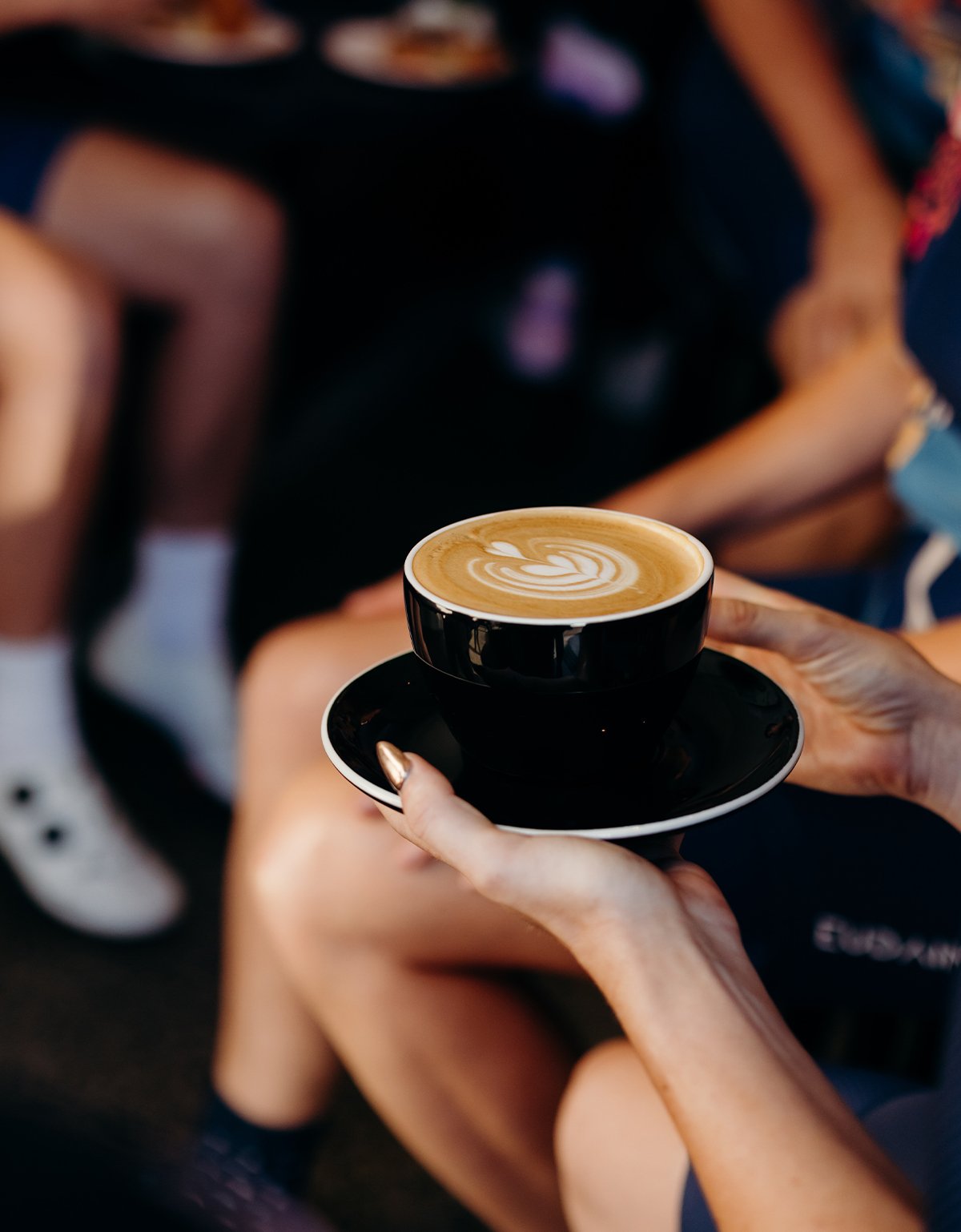
There’s no one definition of cycling. There’s no, ‘You have to be on the road,’ or, ‘You have to do your hardcore mountain bike trails.’ It can be whatever form of riding you want.
The impact of Sofia’s community groups has extended beyond just the social rides. “It’s been really cool to see the flow-on effect,” she says. “I also run some races and cycling events, and now in every event we run, we get over 25% female participation. That’s massive in cycling and not commonly seen nationally or internationally, so that’s really rewarding.”
For those hesitant to get on a bike, Sofia’s advice is simple: just start. “As scary as it sounds, just get on a bike. I think it’s like anything—once you do it, you can quickly work out what will work for you, and find a space that you feel comfortable in.
“There’s no one definition of cycling. There’s no, ‘You have to be on the road,’ or, ‘You have to do your hardcore mountain bike trails.’ It can be whatever form of riding you want. Particularly in Tassie, we’re lucky to have so many forestry roads and gravel roads without a lot of cars so there’s a way for everyone to ride—we’re very lucky.”
Sofia is one of 8 Tasmanians featured in our Women and Girls in Sport project, created in partnership with our friends in the Department of State Growth's Active Tasmania team.
We worked with southern Tasmanian writer Ruth Dawkins, southern Tasmanian photographer Jess Oakenfull, and southern Tasmanian videographers Bree Sanders and the Human Story Film for this Tasmanian story.